The Graduate Associate spotlight segment is intended to highlight the work of our incredible graduate students. We are featuring three students in this edition, all of whom have been doing great work abroad as they continue their research and complete their degree programs.
Samanta Buffa - Italian Studies PhD
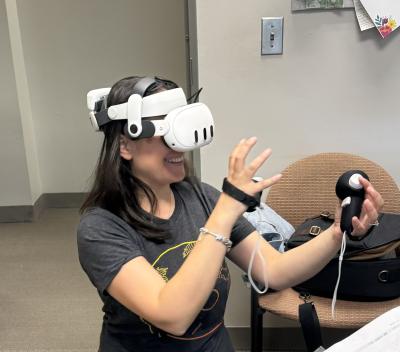
I am incredibly grateful to the FRIT department for granting me the Bulatkin Summer Prize for Summer 2024! It allowed me to fully focus on my research, make substantial progress toward the completion of my dissertation on the use of Virtual Reality (VR) in the language classroom, and reach other objectives that are foundational for my academic life and future career.
As my research involves human subjects, I dedicated the first part of the summer to write and submit the IRB proposal. In the meanwhile, I also overviewed the creation of the virtual worlds done by Dr. Kevin Richards (.113) and worked with him to beta-test the virtual environments (see images attached!). Two main activities were created: one where students will practice the lexicon of shops in a virtual Italian town, and another one where they will use the imperative form to give commands to break free from an escape room.
Over the summer I was able to complete a chapter that I am co-authoring together with Dr. Richards and Dr. Bias for an edited volume on the use of Emerging technologies in Second Language Teaching and Learning. Lastly, I made progress in the course Designing the Future: Instructional Design in the Metaverse, organized by New Mexico State University (NMSU), where I am acquiring new skills to become an instructional designer in the Metaverse.
Here are some images from the VR activities: Lexicon in the Italian town
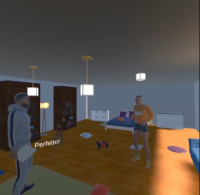
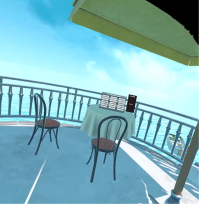
Genevieve Berendt - French & Francophone Studies PhD
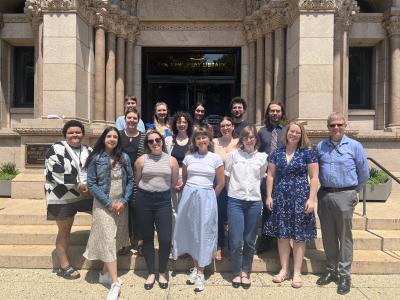
This summer, I had the privilege of receiving the Bulatkin Summer Prize, which allowed me to attend the Newberry Summer Institute in French Paleography led by Dr. Elizabeth Hebbard. Over two intensive weeks at the Newberry Library in Chicago, I immersed myself in French manuscripts and documents, ranging from the 13th to the 17th centuries, and gained hands-on experience with archival materials. The course o]ered a deep dive into reading paleography, familiarizing us with various handwriting styles, abbreviations, and strategies for deciphering challenging scripts. Beyond just reading manuscripts, we acquired practical skills essential for archival work. We learned how to approach archives, developed good habits for working in libraries, and picked up organizational tips for creating accurate transcriptions. For example, did you know that there is a google doc that is worldwide and keeps track of how cold different libraries are? Each day culminated in collaborative group work, where we transcribed and translated documents, tackling challenges like missing letters and indecipherable words, and then refined our findings together. This experience will be invaluable as I embark on my own future archival research. The institute not only provided practical experience with manuscripts and documents but also equipped me with crucial knowledge about navigating and working within archives.
Stefani Scimeca - Italian Studies PhD
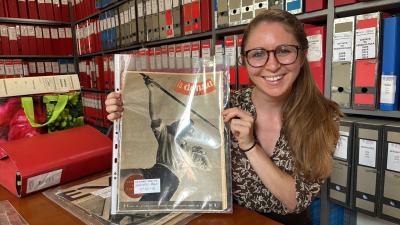
With the help of the Astier Grant, I will execute a transnational project that explores feminist and anti-feminist movements of the 1960s and 70s across Italy and France. Beginning this summer, I went to Milan to start making connections at the Fondazione Arnoldo e Alberto Mondadori, which holds the archive of Alba De Céspedes. In the coming months, I will venture to the Centre des archives du féminisme at the Université d’Angers to continue making progress. This project hopes to question how “nation” and “nationalism” limit our thinking about feminism and anti-feminism and show that (anti-)feminisms cannot be confined within borders.
